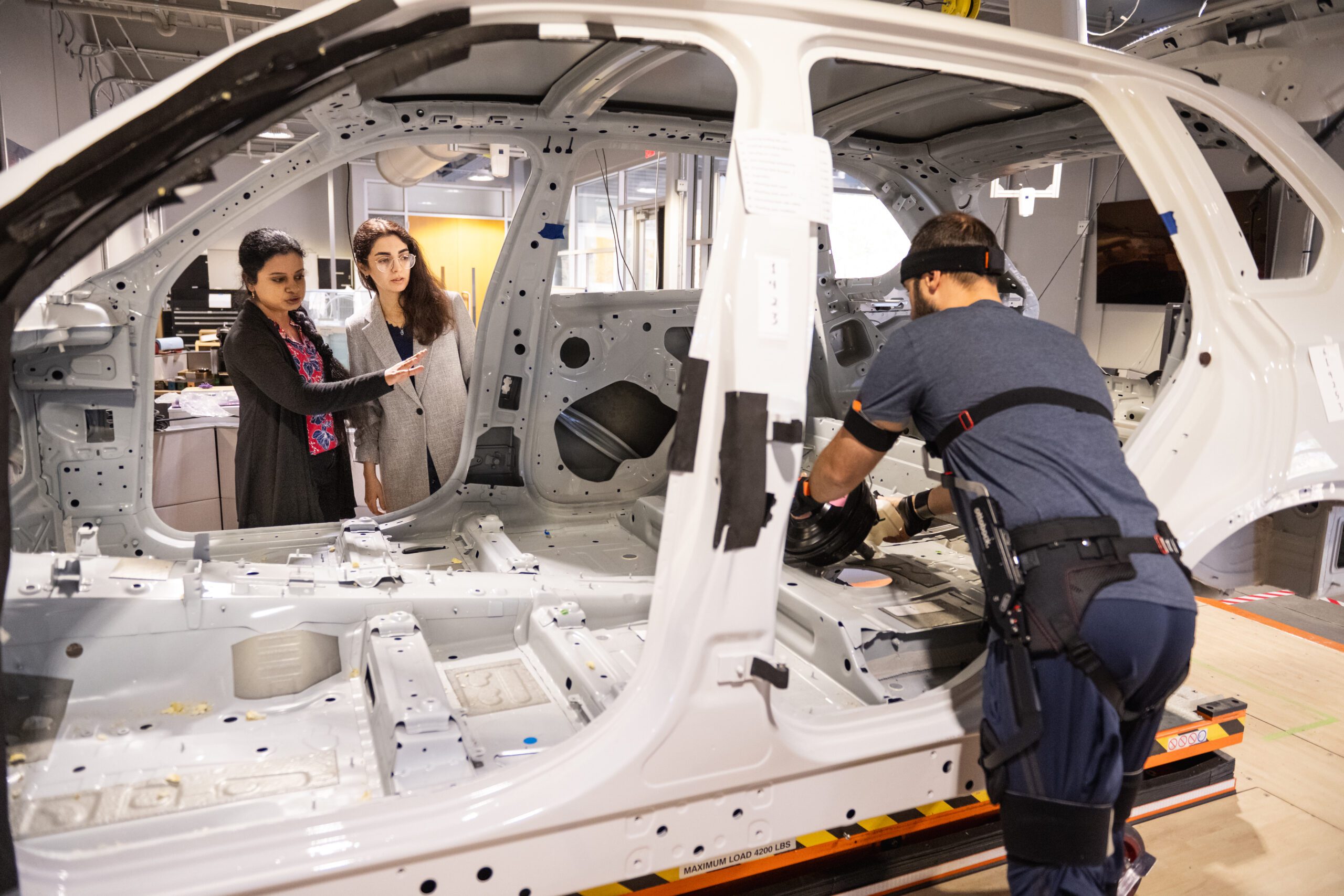It is a place to learn leadership, push the boundaries of innovation and pioneer new ways of helping organizations thrive. It is one of Clemson University’s jewels.
The Department of Industrial Engineering started with an $84,000 investment and is now a thriving community of scholars that is celebrating its 40th year and ranks among the top programs in the nation.

Headquartered in Freeman Hall, the department has served as a launchpad for highly influential executives in a wide range of industries, from healthcare and manufacturing to software and higher education.
Kevin Taaffe, chair of Clemson’s Department of Industrial Engineering, said the recipe for success blends exemplary educational experiences with impactful research.
“The department has a brilliant group of faculty members who are innovators in their research and are passionate about guiding students through the Clemson Experience,” he said. “Their hard work is at the core of what makes Clemson the No. 1 producer of industrial engineering leaders, innovators and entrepreneurs in South Carolina.
“That has been true for four decades, and we are working to continue that tradition for another 40 years and beyond.”
No marker of progress is as impactful as the department’s No. 1 product — its graduates. In 2024’s three graduation ceremonies, the department graduated 154 students with bachelor’s degrees, as well as 60 with master’s degrees or doctorates.

To get an idea of what can be done with a Clemson industrial engineering degree, one need look no further than Rachana Rele. She received her master’s degree in 2005 and went on to an upwardly mobile career in the software industry in the San Francisco Bay Area. She now serves as Adobe’s vice president of Design, Generative AI, Incubator, and Emerging Products.
“Clemson’s industrial engineering degree has shaped my ethos in designing products, processes, and leading people,” Rele said “Its greatest gift was the professors’ deep commitment to my growth. Clemson holds a special place in my heart for the opportunities it opened—ones I wouldn’t have had otherwise.”
That care has been core to the department’s success, going back to when the Board of Trustees approved its launch in 1983, estimating the cost at $84,000.
That initial investment has grown into a department nationally renowned for its research and education. U.S. News and World Report ranked Clemson 15th for undergraduates and 24th for graduate students among the nation’s best industrial engineering programs.
Count only public institutions, and Clemson would rank 11th for undergraduates and 17th for graduate students.
Another key factor in making Clemson a leading producer of industrial engineers is its dedicated alumni network, which includes Arin Bhowmick.

He received his master’s degree in industrial engineering and then headed for the San Francisco Bay Area, where he has steadily grown his career and now works as executive vice president and chief design officer for SAP.
Bhowmick has renewed his connection with Clemson in recent years, serving as a member of its advisory board and winning the department’s 2024 Distinguished Alumni of the Year Award.
“I am all about giving back to the community I came from,” he said. “For me, it’s very important. I also have very fond memories, and if I can contribute in some way to enhance the reputation of Clemson and make it a better place for the next generation, why not?”
For that next generation, the job outlook is bright.
Employment of industrial engineers nationwide is projected to grow 12% from 2023-33, much faster than the average for all occupations, according to the U.S. Bureau of Labor Statistics. The median pay is $99,380 a year, the bureau reported.
Kapil Chalil Madathil, the department’s graduate program coordinator, said part of what distinguishes Clemson industrial engineering is that faculty and students work at the intersection of disciplines.
The approach brings together experts from a wide range of backgrounds into teams, similar to how problems are solved in real-world business. It makes the challenges more interesting and the solutions more effective, said Chalil Madathil, who is the Wilfred P. Tiencken Professor of Industrial and Civil Engineering.

“We are working on things that matter,” he said. “Whether it is looking at pharmaceutical supply chains to understanding how contagious information is spread through social media, we have a wide variety of projects focusing on some of the world’s most interesting and important challenges.”
At the graduate program level, the department now offers two major tracks– operations research and human factors. Undergraduates have the opportunity to learn about both during their degree.
In operations research, students and faculty use sophisticated techniques such as mathematical models and algorithms to solve complex engineering and societal problems in areas ranging from transportation to human trafficking to health care. That could, for example, include the best way of routing airplanes to helping emergency management officials figure out where to open shelters for a hurricane.
Human factors puts the focus on how humans interact with systems to improve health, safety and well being. Examples include designing virtual reality simulations and making technology such as smartphones and exoskeletons as user friendly as can be.
Clemson’s Department of Industrial Engineering has also been a launchpad for faculty. Since 2013, two department chairs have gone on to serve as college deans at major research universities, including Anand Gramopadhye, dean of Clemson’s College of Engineering, Computing and Applied Sciences.

Many other faculty members have received notable honors, including recognition as fellow in the Institute of Industrial and Systems Engineers and participation in National Academy of Engineering programs.
Taaffe said several other factors– many outside the classroom and lab– make Clemson a great place to call home.
“Clemson has long-standing academic and athletic traditions, with access to some of the most scenic landscapes and temperate climates around. Beyond a top-ranked IE program and a great football team, you’ll always find people on the lakes or heading to the mountains and waterfalls. And, of course, Clemson on game day is one of the most exciting places to be,” Taaffe said. “We’ve got one of the nation’s best alumni networks, and you’ll run into some of the friendliest people you’ve ever met right here on this campus. It’s all here for you.”







